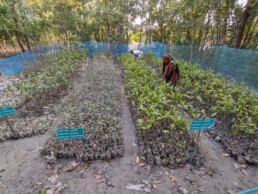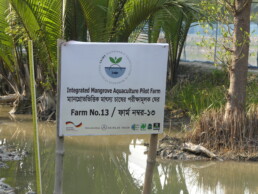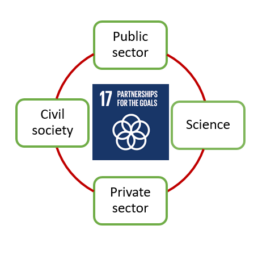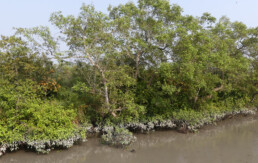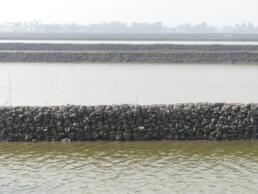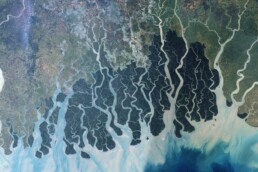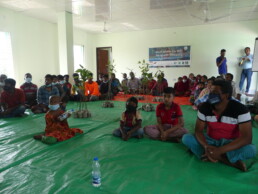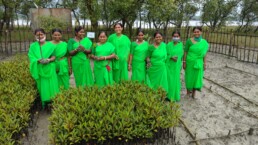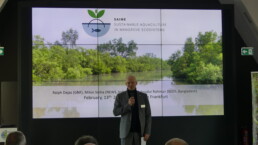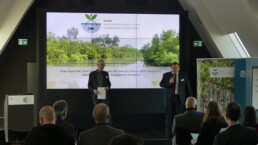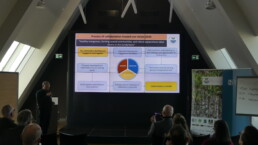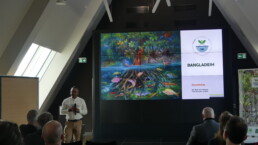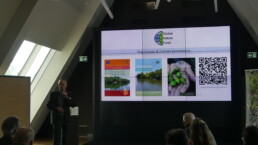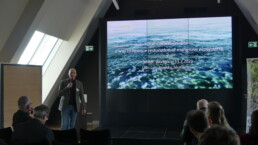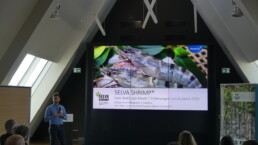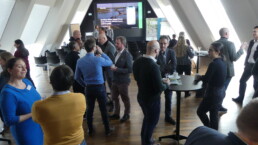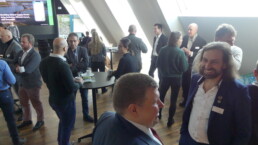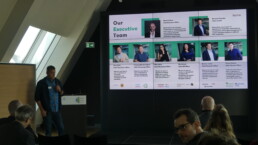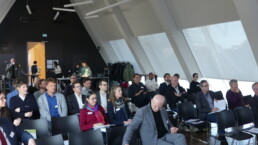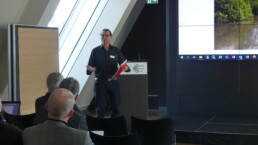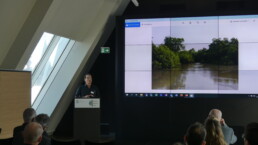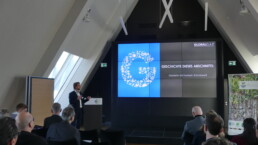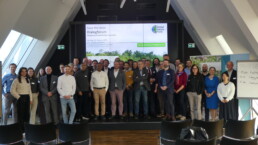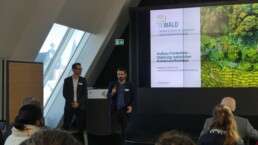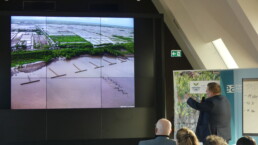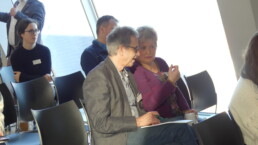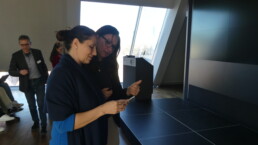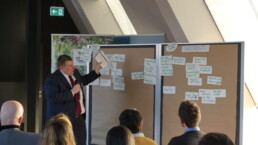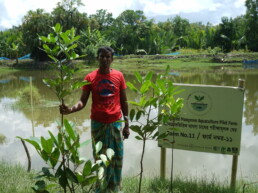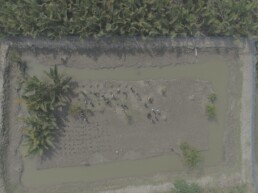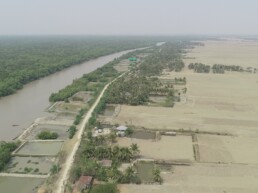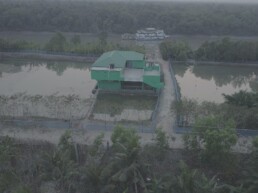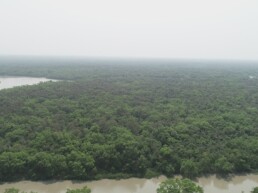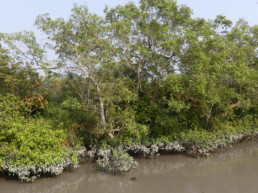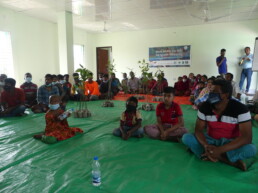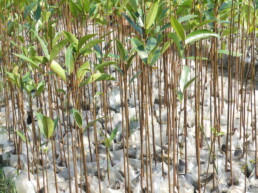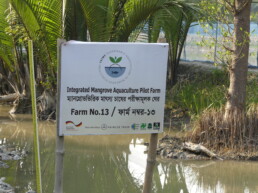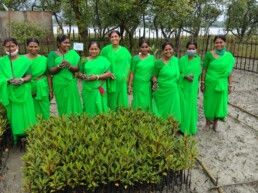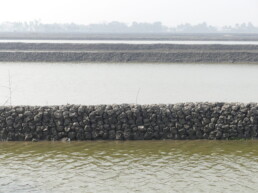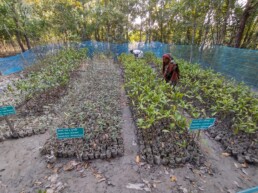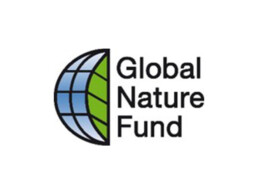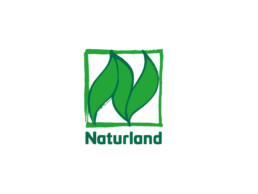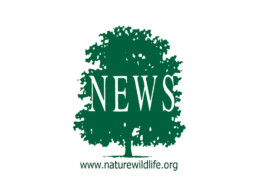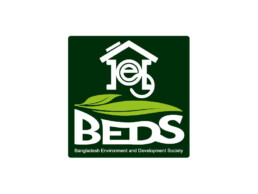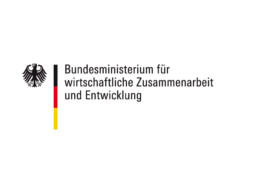Sustainable Aquaculture in Mangrove Ecosystems
The mangrove forests of the tropical coasts are among the most important and productive ecosystems on earth. Among other things, they fulfil an enormously important function in stabilising the global climate and protecting the coasts due to their gigantic carbon storage potential. In recent decades, however, the world’s mangrove forests have been severely depleted, by 20 percent since 1980 alone. Among other factors, the unchecked spread of shrimp aquaculture, especially in the countries of South and Southeast Asia, is a major reason for their destruction. Despite these negative impacts, shrimp farming, as a key economic activity in mangrove areas, offers great potential to significantly promote mangrove conservation and restoration. This applies to aquaculture systems as well as to other areas of farms and communities.
In our SAIME (Sustainable Aquaculture in Mangrove Ecosystems) project, we are therefore working on the emergence of pilot aquaculture farms that use sustainable IMA (integrated mangrove aquaculture) systems. In this pond farming system, mangroves are planted in the dams, water channels and directly in the pond. This allows shrimp to exist in harmony with mangroves and the ecosystem is preserved.
Background
In the context of aquaculture, the Global Nature Fund (GNF) is implementing a project together with the Naturland Association for Organic Agriculture (Naturland-Verband für ökologischen Landbau e.V.), which is funded by the German Federal Ministry for Economic Cooperation and Development (BMZ). This project “Multi-stakeholder partnership to strengthen transformative processes in the shrimp trade as a basis for the protection of mangrove ecosystems in South Asia” (SAIME) is being implemented in the Sundarbans, the largest mangrove area in the world with an area of over 10,000 km². Two local cooperation partners, the Bangladesh Environment and Development Society (BEDS) and the Nature Environment & Wildlife Society of India (NEWS) coordinate the measures on site. The project is based on the concept of so-called multi-stakeholder partnerships (MSP), in this case between India, Bangladesh and Germany
What is a multi-stakeholder partnership?
A multi-stakeholder partnership (MSP) is designed as a transformative process involving civil society, the private sector, and scientific and public stakeholders. A particular focus is on establishing South-South and North-South dialogues with the aim of defining joint plans and enabling a free exchange of technical and market-relevant information.
This process leads to a significant strengthening of the actors involved and thus serves Goal 17 of the UN Sustainable Development Goals (partnerships to achieve the goals).
Mangrove ecosystems
More than 20 percent of the world’s mangrove population in tropical coastal regions has been lost since the 1980s. The habitats of these salt-tolerant plants are thus disappearing three to five times faster than tropical rainforests or coral reefs. This is particularly alarming given the immense ecological importance of mangroves at the boundary between water and land. The trees and the dense network of their roots, which stand like stilts in the water, provide habitats for a variety of rare mammals, reptiles and birds. They serve as a refuge and nursery for countless species of fish and crabs and retain large amounts of sediment. In this way, the mangrove forest protects the coasts from erosion, tropical cyclones and storm surges. And it is also effective against climate change: healthy mangrove forests store more carbon than any other forest – up to 1,000 tons per hectare. Since 2005, the Global Nature Fund (GNF) has been involved in mangrove conservation in Asia, since 2018 in the Sundarbans region.
Integrated Mangrove Aquaculture (IMA)
Many mangrove forests have been cleared for intensive aquaculture. This must be stopped. In perspective, the areas should be transferred to extensive aquaculture.
In the SAIME project, Integrated Mangrove Aquaculture (IMA) is implemented. In this extensive form of culture, with low stocking densities and no additional input of feed, mangroves are planted in the ponds and dams of the farms. This increases biodiversity in the farming areas and has positive effects on aquaculture, e.g. falling leaves from the mangrove trees serve as a food source for the shrimp.
Project regions in India and Bangladesh
The Sundarbans (literally “beautiful forest”) are the largest mangrove forests on earth. They cover an area of about 10,000 km². Of this, about 6000 km² are in Bangladesh and 4000 km² in the Indian state of West Bengal.
The mangrove forests are located in a low-lying estuary and floodplain of the Brahmaputra, Ganges and Meghna rivers, which drain precipitation from the southern slopes of the Himalayas as well as seasonally large water masses from the monsoon zone into the sea. The species-rich ecosystem is difficult to access and widely branched, because the rivers in the Ganges delta divide into numerous tributaries and estuaries. The endangered Bengal tiger and the endemic Sundari tree are at home here.
Overall, valuable foundations were laid in the first phase of the SAIME project to further expand this approach. For example, a central cooperative building has been constructed in Bangladesh, which is used for training, but also as a cooling station for the shrimps of the pilot farmers.
Implementation of the IMA in the SAIME project
At a total of three project sites in India and Bangladesh, numerous farmers have been trained by the local partners in the practices of integrated mangrove aquaculture. In addition, tree nurseries run by women have been established. Here, the seedlings are grown, which are later planted in the aquaculture facilities. By selling the mangrove seedlings to other NGOs or communities outside the project region, additional income is generated. The farmers are now organized in cooperatives and registered with the state.
Events
Dialogue Forum Mangrove Aquaculture (13 Feb 2023)
As part of the SAIME project, a dialogue forum on integrated mangrove aquaculture took place on 13 February 2023 in Frankfurt am Main. About 50 interested participants came together to discuss various approaches to sustainable shrimp production. In the end, everyone was sure: there is more to be done! Mainstreaming sustainable production methods is indispensable for the promotion of biodiversity. Click here for the event program (GER).
International Symposium on Mangrove Ecosystems and Sustainable Fisheries (1-3 March 2023)
Khulna University, Khulna, Bangladesh.
Pictures und Videos
Partner and Sponsors
The project will initially run until April 2023. SAIME is funded by the German Federal Ministry for Economic Cooperation and Development (BMZ) and also receives support from Mercedes-Benz AG. Such cooperations have a lighthouse effect for the GNF: Because the cooperation between civil society and economic actors is often demanded – in the SAIME project it is actually implemented. The project has already been able to implement valuable project goals on site in the Sundarbans, also due to the excellently networked and very experienced partner organizations (NEWS and BEDS). Due to the pandemic, dialogue with the food trade in Germany has had to take place digitally as far as possible so far.
Partner
Sponsors
Further links & Downloads
Contact
Ralph Dejas, Project Coordinator: dejas@globalnature.org
Thies Geertz, Project Coordinator: geertz@globalnature.org
Oliver Peters, Project Manager: peters@globalnature.org


